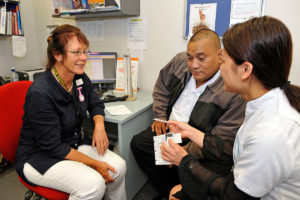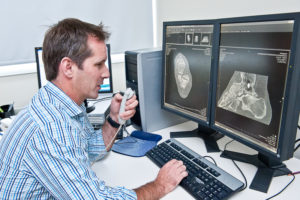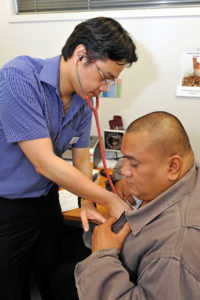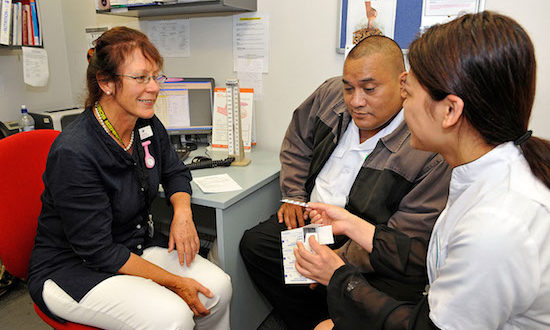 Choosing Wisely is part of a global initiative that has been implemented in a number of countries, including USA, Canada, the UK, Australia and some of Europe. It aims to help create a culture where patients and health professionals can have valuable, informed conversations about a patient’s care- avoiding unnecessary tests, treatments and procedures that may provide little or no benefit to a patient and could even cause harm.
Choosing Wisely is part of a global initiative that has been implemented in a number of countries, including USA, Canada, the UK, Australia and some of Europe. It aims to help create a culture where patients and health professionals can have valuable, informed conversations about a patient’s care- avoiding unnecessary tests, treatments and procedures that may provide little or no benefit to a patient and could even cause harm.
You might ask, what is the problem with having a test if I am worried something is wrong? Isn’t it better to be safe than sorry?
The Council of Medical Colleges as facilitator of the Choosing Wisely initiative, worked with Consumer NZ to survey consumers on their sentiment around unnecessary tests, treatments and procedures. There were 1024 respondents. When they visited a doctor, fifty-six percent of respondents generally expected the doctor to provide a prescription or send them for a test, thirty-one percent didn’t and thirteen percent were unsure. Forty-one percent of these agreed some tests or treatments which are carried out do not benefit the patient in any meaningful way.
There are a large number of medical tests, treatments and procedures available, but that doesn’t always mean we should use them. Unnecessary tests, treatments and procedures such as X-rays and CT scans can expose patients to potentially cancer-causing radiation. Many studies have shown scans frequently identify things that require further investigation but often turn out to be nothing. Patients can undergo stressful and potentially risky follow-up tests and treatments for no reason.
This month, let’s think again about imaging tests for lower-back pain.
 The problem
The problem
Getting an X-ray, CT scan or MRI may seem like a good idea. But back pain usually subsides in about a month, with or without testing. For example, one study found that back pain sufferers who had an MRI in the first month were eight times more likely to have surgery, but didn’t recover faster.
The risks
X-rays and CT scans expose you to radiation, which can increase cancer risk. CT scans and X-rays of the lower back are especially worrisome for men and women of childbearing age, because they can expose testicles and ovaries to substantial radiation. Finally, the tests often reveal abnormalities that are unrelated to the pain, but can prompt needless worry and lead to unnecessary follow-up tests and treatment, sometimes even including surgery.
 When to consider the tests
When to consider the tests
X-ray and CT scans often make sense if you have nerve damage, or signs of a serious underlying condition such as cancer or a spinal infection. “Red flags” that can alert your health professional that imaging may be worthwhile include a history of cancer, unexplained weight loss, recent infection, loss of bowel or bladder control, abnormal reflexes, or loss of muscle power or feeling in the legs.
There may be tests, treatments and procedures you think you need, but you don’t. Let’s think again and engage in a conversation with your health professional today. To make sure you end up with the right amount of care- not too much and not too little, Choosing Wisely promotes four questions all patients should ask their health professional:
- Do I really need this test or procedure?
Tests may help you and your doctor or other healthcare professionals determine the problem. Procedures may help to treat it. Understanding why your doctor is considering a test- and weighing up the benefits and risks – is always advisable, and is every patient’s right and responsibility.
- What are the risks?
If you have- or don’t have- the test or procedure, what is likely to happen? Are there potential side effects? What are the chances of getting results that aren’t accurate? Could that lead to more testing or another procedure?
- Are there simpler, safer options?
Sometimes all you need to do is make lifestyle changes, such as eating healthier foods or exercising more. Or an alternative test or treatment that might deliver useful information, while reducing any potential negative impacts for you.
- What happens if I don’t do anything?
Ask if your condition might get worse- or better- if you don’t have the test or procedure right away.
To find out more on common tests, treatments and procedure you may think you need, click to visit our webpage Choosing Wisely.
In next month’s article, we will cover health checks – when you need them and when you don’t.









Join the Discussion
Type out your comment here:
You must be logged in to post a comment.